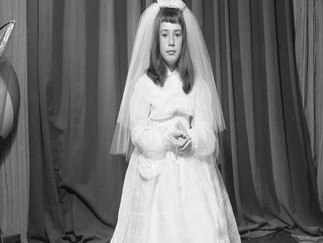MARIA RUIDO
PLAN ROSEBUD
ON IMAGES, SITES AND POLITICS OF MEMORY
- When Charles Foster Kane died, he said just one word... - Rosebud... - Yes, that was the only thing he said... what could it mean?... - ... we’ll find out about Rosebud... Orson Welles, Citizen Kane
PLAN ROSEBUD 1: CRIME SCENE
Plan Rosebud 1 is focused on the recent social debate around “The Historical Memory Act” in Spain, and the current relations between the sites of memory and the politics of memory that are produced through cultural industries. They are studied in details, in our case, through war tourism and commemorative tourism.
In Plan Rosebud 1 we visit Museums and Commemorative Historical War Sites and these materials form the main part of Plan Rosebud 1. This study, is not only limited to the Spain, and especially to the Spanish province of Galicia (where I, and General Franco were born), but it is presented as a comparative study with war and commemorative tourism site in Great Britain and Normandy as the European memory policy site of the WWII.
The reason to choose Great Britain as more significant comparative variable was related to the fact that Britain is a well established European democracy with a completely different past from the one we have inherited from the Franco dictatorship and, nonetheless, as we discovered throughout the process, we have much more similar dynamics than expected in terms of links between cultural industries and production of memory (as an unstoppable and supra-state phenomenon due to economic globalisation).
The politics of memory is in fact equally selective in relation to episodes that may contradict or question the compact and linear heroic narratives that are transmitted by the state or the media (I am referring, for example, to the very low interest in research about the condition of German and Italian prisoner in detention camps in the United Kingdom until very recently).
© Maria Ruido, Plan Rosebud 1. Courtesy of the artist
PLAN ROSEBUD 2: CALLING THE GHOSTS
Plan Rosebud 2 focuses on the Spanish Transition, the period that took place after the end of Franco’s rule, placing it in its cultural context, as well as on the final years of the Labour Party's rule in Great Britain during the seventies and the rise of the conservative leader Margaret Thatcher.
Through analysis of social movements and popular culture, the film attempts to dismantle the idea that a pact among the Spanish ruling elite, led by Adolfo Suárez and King Juan Carlos, “saved” Spain from a new civil war and paved the way for a “peaceful” transition to a democratic regime (as we can see and listen, for example in the most famous mithologic-media account, La Transición española, the series directed by the journalist Victoria Prego in the first years of the government of Felipe González).
Again, the epic discourse, built through the media and certain kind of cinematography, distorts, from our point of view, the real work and the maturity of a civil society that, for decades had been sustaining a resistance more or less covered against the repressive and instrumentalizing strategies of the dictatorship. We aim here at studying popular culture in relation with the different social forces protagonist of the political change (from the base union movements to the feminist movement, trough neighbours associations or the collectives of gay and lesbian people) and analyse why and how certain images of the militant cinema that show the collective effort of these fights have been removed or even indirectly censored to make it possible the triumphal narrative, individualist and linear that we all have learnt trough television, or the press with more diffusion.





































